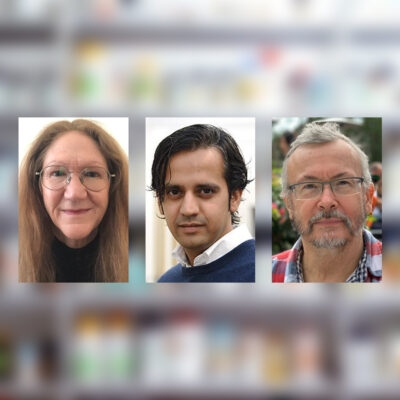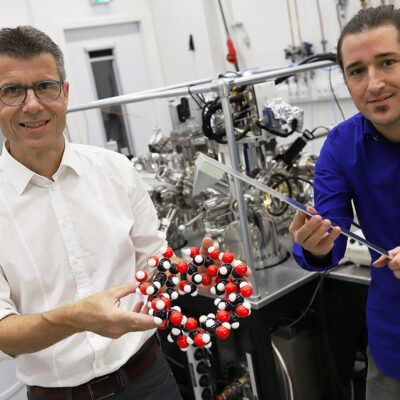After working in Italy, France and Japan Dr. Bogdan Ludusan has only recently started his work at Bielefeld University as part of the Marie Slodowska-Curie fellowship programme. The research focus of the linguist lies in speech processing and here, in Bielefeld, he aims to explore conversational laughter and how it can improve the naturalness of human-machine interactions. We caught up with him to ask three questions about his work at Bielefeld University.
What brought you to Bielefeld of all places?
I have known my current supervisor, Professor Petra Wagner, for quite a while now, having worked on similar topics and having met at various conferences over the years. I always liked her approach to science, so when I started thinking of possible collaborations for a new project I immediately thought of her. I contacted her and after some discussions and brainstorming sessions, we came up with a pertinent topic that was interesting to pursue: laughter in conversation. The decision was also helped by the complementary expertise found in the department and the university. And, about a year after the submission of the project, I have changed continents and moved from Tokyo to Bielefeld.
What exactly are you trying to find out about laughter?
First of all, I have to mention that the type of laughter I examine is not the humorous one, due to one hearing a good joke, or watching a comedy show. I am interested in the type of laughter people use in everyday conversation, with family and friends, which often goes unnoticed by us. Right now, I am focusing on the context of laughter, trying to discover the acoustic cues that might signal its introduction in conversation. After this phonetic analysis, I will be working on methods for the automatic extraction of laughter from speech, but the ultimate goal of the project is to integrate the knowledge gathered into a dialogue system. The idea is to make your personal speech assistant, such as Google Voice or Siri sound more natural, by integrating conversational phenomena, like hesitations, fillers and, why not, laughter into their architecture. It might take a while to see such features in commercial application, but I am sure that future dialogue systems will be using them.
What do you hope to take back with you after you finish?
Well, it is too early to tell, as I am still at the beginning of the project, but one thing I am sure I will take back is the experience of working with many different people, in a new research field. The great thing about Bielefeld University is that it makes you collaborate with people. Already having the main building with everything in one place forces you to talk and find out about people. I’m really looking forward to the rest of my stay!
Bogdan Ludusan (34) has a diploma in telecommunications engineering from the Technical University of Cluj-Napoca in Romania. From there he went on to finish his PHD in computer science at the University of Naples Federico II, Italy. He moved to France to work in Rennes at the Institut de Recherche en Informatique et Systèmes Aléatoires, and later in Paris at the Laboratoire de Sciences Cognitives et Psycholinguistique. Before recently starting his research at Bielefeld University’s Faculty for Linguistics and Literary Sciences he lived in Tokyo where he was working for the RIKEN center for brain science.
The Marie Slodowska-Curie fellowship is funded by the EU Horizon 2020 Research and Innovation Programme.



